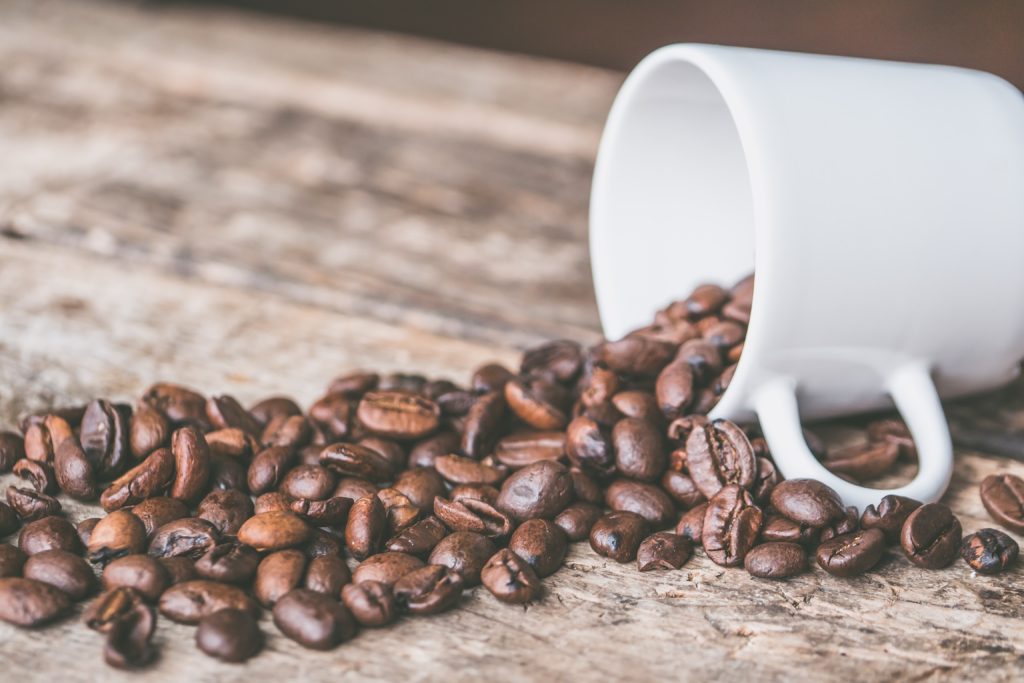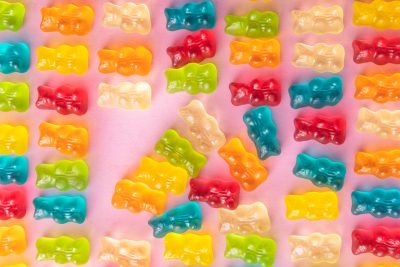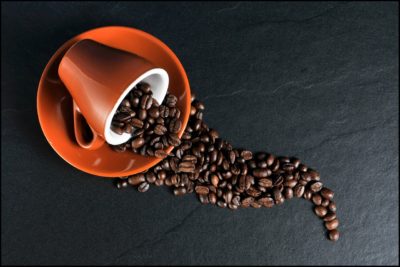Table of Contents
Caffeine and sleep: These characters often twirl around each other in an intricate dance. Many people look forward to that first cup of tea or coffee in the morning — followed by cups two, three, four, or five.
Some swear they can’t get through their day without caffeine because they don’t get enough sleep or don’t sleep well. But what if caffeine is the sleep-stealing culprit itself? Perhaps you devour caffeine because you’re tired, but wonder if you’re tired because you have too much. Let’s take a look at what the evidence says.

Benefits of Caffeine
Look, there’s no denying it: caffeine can give you a much-needed boost in concentration and energy. Productiveness and a sharp wit feel great, so why wouldn’t you drink a delicious beverage that gives you both?
Energy
Research has proven the energetic effects of caffeine. One 2018 study review found caffeine positively affected both physical and mental function. As a stimulant, says Lauren Tobias, MD, pulmonary, critical care, and sleep medicine specialist at Yale Medicine, caffeine blocks a chemical called adenosine in the brain that makes you tired. That’s why you feel more alert and awake after a cup of coffee or an energy drink.
Improved Concentration
Caffeine not only makes you feel like you can do everything twice as fast, but it can also improve your attention and concentration. The bad news? Caffeine’s effects are temporary. That’s why you have to go back to the coffee pot or pop open another soda after lunch: You’re out of “gas.”
Better Mood
While caffeine is pumping through your system, it can improve your mood. You may have experienced this yourself, especially in the midst of a groggy morning or an afternoon food coma. Be careful, though. Too much caffeine can shift your good mood into anxious tension.
Negative Effects of Caffeine
While caffeine has some undeniably positive effects, it can also cause some mayhem. As a chemical compound, caffeine works a lot like a medication. Just like any pill, you can take the wrong “dose” for your body. When you take too much, caffeine can create problems from head to toe.
Some common symptoms of excessive caffeine include:
- Anxiety
- Diarrhea
- Drowsiness
- Fast heartbeat (tachycardia)
- Headaches
- Increased blood pressure
- Insomnia
- Muscle shakes
- Nausea
- Sweating
None of those sound fun, and you may have experienced some or all of them after one-too-many caffeine-loaded drinks.
How Does Caffeine Affect Your Sleep?
All of caffeine’s benefits come from its ability to perk you up. But what happens when the caffeine is still kicking, and you want your body and brain to settle down?
“Several decades of research,” explains Tobias, “have clearly shown that caffeine — in high enough doses and close enough to bedtime — can cause people to take longer to fall asleep, spend more time awake in the middle of the night, and get fewer hours of sleep overall.”
Caffeine can get stuck in the middle of what some experts call a sleep sandwich. Sleep is the meat between two “slices” of caffeine. If you have too much caffeine during the day, that can cause sleep deprivation, which then makes you want more caffeine the next day, and so on.
How Long Does Caffeine Stay In Your System?
In general, it takes about 10 hours for caffeine to fully clear your system. However, Chester Wu, MD, sleep medicine physician in Houston, TX explains that everyone breaks down caffeine differently. Some factors that affect caffeine clearing include:
- Age
- Body weight
- Gender
- Genetic factors
- Health conditions
- Medications (including birth control)
- Whether you smoke
You can follow the 10-hour rule of thumb, but you may need to do a little trial and error to find out how long it takes your body to kick out the last bit of caffeine.
How Many Hours Before Bedtime Can I Have Caffeine?
Some people can drink caffeine right up till bedtime and swear up and down they sleep great. But most people need to cut themselves off well before they hit the sheets.
“A lot of people don’t realize that caffeine sticks around in your system long after you savor that last sip,” says Tobias. “It has a ‘half-life’ of around five hours, which means that half of the caffeine will remain in your bloodstream five hours after you drink it.”
“Because it’s hard to know how much caffeine you’re drinking as well as how you metabolize caffeine,” agrees Wu, “a safe rule of thumb is to work back 10-12 hours from when you aim to go to bed. So, if 10 p.m. is your desired bedtime, you should last consume caffeine somewhere between 10 a.m. and noon.”
How Much Caffeine Is Too Much?
Focusing on your caffeine timing can be much more helpful than fixating on the amount, says Wu, “as it’s hard to tell exactly how much caffeine you’re consuming and how much caffeine is right for you.”
The Food and Drug Administration (FDA) recommends a max of 400mg of caffeine daily. That amount of caffeine equals about four cups of brewed coffee or 10 cans of soda. The caffeine content in energy drinks and gummies varies a ton between brands, and it can be hard to find out just how much is included.
Alternatives to Caffeine
While nothing will give you the near-immediate energy boost of caffeine, you have a lot of options for replacing it. It all depends on your favorite reason for consuming caffeine-laden food and drinks.
Coffee Alternatives
Do you love a warm mug in your hands every morning? You can try decaf tea like chamomile or ginseng. If you crave the creamy richness of a milky coffee, try golden milk: a rich concoction of milk and spices. Chicory root coffee, which some claim smells and tastes similar to coffee, can satisfy that morning beverage craving. And it can even improve digestion!
You could also hop on the new mushroom coffee bandwagon. A blend of coffee beans and medicinal (non-hallucinogenic) mushrooms, many claim this drink is delicious even without all the caffeine. Since it is so new, this beverage is largely untested, so you may want to wait for the green light from your healthcare provider.
Soda Alternatives
If you’ll miss soda the most, you can try a decaf version like root beer or Sprite. Soda water is also growing in popularity. With no sugar and no caffeine, these drinks come in all kinds of flavors, from coconut pineapple to passionfruit.
You can also try infusing water with fruit or experimenting with a juicer. It may take some getting used to, but many people find they don’t miss soda at all once they get used to life without it.
Energy Drink Alternatives
The fruit in smoothies can give you an energy boost because of their sugar content. However, you still have to be careful with sugar, even the sugar in fruit. While it can boost your energy, the following energy crash can be brutal.
Lots of your favorite caffeine sources can be replaced with less caffeine. If you love chocolate, but want to skip the caffeine, try white chocolate. You can also try incorporating more gut-friendly foods into your diet, which can contribute to higher energy levels overall, and better sleep.
FAQs
Is Caffeine Bad for You?
Caffeine itself isn’t bad for you if you stay under the recommended amount of 400mg per day. However, the caffeine delivery system you choose can be bad for you if not taken in moderation. For example, if you drink 10 cans of soda, you’ll be in the “safe” caffeine range, but it probably won’t surprise you to hear that amount of soda isn’t great for your body.
Is It Safe to Drink Caffeine Every Day?
“A crucial aspect of considering ‘safe’ caffeine consumption,” urges Dr. Lauren Tobias, “is thinking about what other substances enter your body along with the caffeine. For people — myself included — who prefer their cup of Joe ‘light and sweet,’ the calories that come with added cream and sugar are important to consider, along with caffeine’s direct effects on sleep.”
How Much Caffeine Is in a Cup of Coffee?
Coffee brands differ slightly. One eight-ounce cup of coffee can hold anywhere from 95-200mg of caffeine. But in general, 4-5 cups of coffee equals 400 mg, according to the FDA. Caffeine regulation hasn’t been addressed in a while, but for now, the FDA does not require companies to disclose their products’ caffeine contents.
Can You Drink Caffeine When You’re Pregnant?
During pregnancy, research shows caffeine stays in your system longer, with the half-life up to 15 hours by the third trimester. Although the why isn’t clear yet, caffeine does seem to cause some problems for a growing baby, including:
- Disruption of fetal hormones
- Excess weight gain after birth
- Low birth weight
- Obesity and diabetes later in life
Pregnant people who drink as little as 50 milligrams of caffeine a day may have an infant with a smaller birth weight, but the World Health Organization (WHO) maintains that baby can tolerate under 200-300mg of caffeine per day.
The Last Word From Sleepopolis
For many, caffeine fulfills an almost cultural role. You’ve been told by Folger’s that no morning is complete without a steaming cup of coffee. Pepsi and Coca-Cola have worked hard to tell you that soda is the best drink when you need a cooling refreshment or just to have fun! You know your life better than anyone else, and you know how well you’re sleeping. Take all this into account, and choose what’s best for you. You won’t be sorry you did!
Subscribe Today!
Get the latest deals, discounts, reviews, and giveaways!


